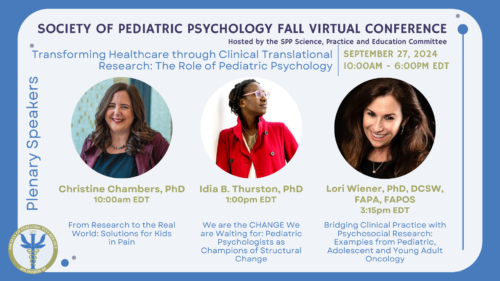2024 Fall Virtual Conference
Transforming Healthcare through Clinical Translational Research: The Role of Pediatric Psychology
Friday, September 27, 2024
10:00-12:00pm | 1:00-3:00pm | 3:15-5:15pm
Thank you for attending!
Register now for our third annual SPP Fall Virtual Conference on Friday, September 27, 2024! This year’s conference theme centers on “Transforming Healthcare through Clinical Translational Research: The Role of Pediatric Psychology.”
This is a one-day conference that includes: three 2-hour sessions (each including a plenary speaker followed by 2 symposia speakers). Sessions will be hosted at 10:00am EDT, 1:00pm EDT, and 3:15pm EDT. Each session provides 2 CEs (total of 6 CEs).
The 2024 Fall Virtual Conference aims to provide:
* Learning about high impact areas of pediatric psychology research produced by SPP research leaders who come from diverse research backgrounds such as assessment, treatment and interventions, clinical outcomes, adherence, and health disparities.
* A forum for discussion of current clinical translational research directions and to consider how research informs clinical practice, service delivery, health equity, and policy decisions.
* An increase in attendees’ awareness of current advancements in equity, diversity, and inclusion in the field of pediatric psychology and considerations for their own work.
Plenary Speakers:
* Christine Chambers, PhD - From Research to the Real World: Solutions for Kids in Pain
* Idia B. Thurston, PhD - We are the CHANGE We are Waiting for: Pediatric Psychologists as Champions of Structural Change
* Lori Wiener, PhD, DCSW, FAPA, FAPOS - Bridging Clinical Practice with Psychosocial Research: Examples from Pediatric, Adolescent and Young Adult Oncology
Continuing Education: 6.0 CEs
6 CE credits are available to licensed psychologists who attend the full conference, 4.0 CE credits available to licensed psychologists who attend two 2-hour sessions, 2.0 CE credits available to licensed psychologists who attend one 2-hour session. The Society of Pediatric Psychology (Division 54 of the American Psychological Association) is approved by the American Psychological Association to sponsor continuing education for psychologists. The Society of Pediatric Psychology maintains responsibility for this program and its contents.
If you have questions about the conference program, please contact the conference chairs:
Allison A. Stiles, PhD, FVC 2024 Chair: Allison_Stiles@URMC.Rochester.edu
Katherine Darling, PhD, FVC 2024 Co-Chair: katherine_darling@brown.edu
Hosted by the SPP Science, Practice, and Education Committee.
Registration is non-refundable.
| Early Registration: June 25 - September 13 |
Regular Registration: September 14 - September 27 |
|||||
| 1 Session | 2 Sessions | All 3 Sessions | 1 Session | 2 Sessions | All 3 Sessions | |
| Member | $60 | $120 | $160 | $75 | $150 | $195 |
| Non-Member | $80 | $160 | $220 | $100 | $200 | $265 |
| Student Member | $10 | $10 | $10 | $15 | $15 | $15 |
| Student Non-Member | $20 | $20 | $20 | $25 | $25 | $25 |
| Community Participant | $20 | $20 | $20 | $25 | $25 | $25 |
Session 1: 10:00am EDT
 From Research to the Real World: Solutions for Kids in Pain
From Research to the Real World: Solutions for Kids in Pain
Christine Chambers, PhD
10:00am - 11:00am
Dr. Christine Chambers is an international leader in children’s pain research and a national voice for children’s health. Twice named one of Canada’s Top 100 Most Powerful Women by the Women’s Executive Network, Christine has published over 200 articles in peer-reviewed scientific journals and is recognized in the top 2% of the most cited scientists in the world. She is a Professor and Tier 1 Canada Research Chair in Children’s Pain at Dalhousie University and faculty member in the Centre for Pediatric Pain Research at IWK Health Centre. Her acclaimed research program has helped establish Canada as a leader in children’s pain research, launching award-winning projects including #ItDoesntHaveToHurt and mentoring over 100 trainees. Christine is the Scientific Director of Solutions for Kids in Pain (SKIP), and the Scientific Director of the Institute of Human Development, Child and Youth Health (IHDCYH) at the Canadian Institutes of Health Research (CIHR).
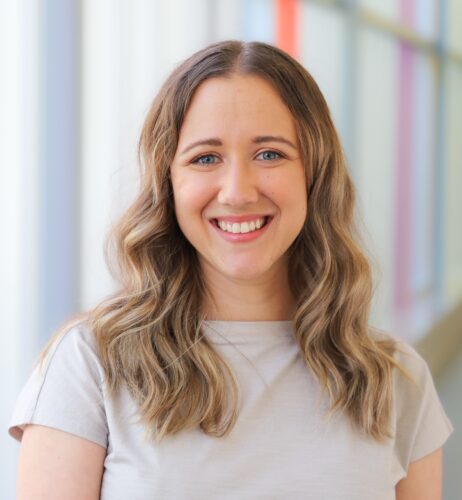 Intentional Inclusion: Enhancing Access to Pain Research and Care for Gender-Diverse and Autistic Youth
Intentional Inclusion: Enhancing Access to Pain Research and Care for Gender-Diverse and Autistic Youth
Katelynn Boerner, PhD
11:00am - 11:20am
Dr. Katelynn Boerner (she/her) is a clinician-scientist passionate about making pain research and care more accessible and equitable for young people. She is a leading expert on the role of sex, gender, and neurodiversity in pain.
Dr. Boerner completed her PhD in Clinical Psychology at Dalhousie University, and residency in Child Clinical Psychology at the Children’s Hospital of Eastern Ontario. This was followed by postdoctoral fellowships in Psychiatry and Pediatrics at the University of British Columbia.
Dr. Boerner is actively involved in leadership positions with the Sex, Gender, and Racial Differences in Pain Special Interest Group of the International Association for the Study of Pain, and the Gender Health Special Interest Group of the Society of Pediatric Psychology. In addition to her work, she is an amateur pianist, a fair-weather runner, the proud mum of a kindergartener, and is always on the hunt for an amazing coffee.
Enhancing Adolescent and Young Adult Cancer Care through Community-Engaged Digital Health
Alexandra Psihogios, PhD
11:20am - 11:40am
Alexandra (Alex) Psihogios, Ph.D. is an Assistant Professor of Medical Social Sciences, licensed clinical psychologist, full member of the Robert H. Lurie Comprehensive Cancer Center, and Co-Chair of the Adolescent/Young Adult (AYA) Cancer Research Committee in the Feinberg School of Medicine at Northwestern University. With funding from the National Cancer Institute and cancer foundations, her programmatic research focuses on improving cancer outcomes for AYAs with cancer and survivors via equitable and innovative digital health approaches. Much of this research targets disease self-management and adherence. Across projects, Dr. Psihogios prioritizes the creation of digital tools that AYAs will use and can access in the “real-world” by 1) deeply partnering with AYAs, 2) employing human-centered design and implementation science methods, and 3) using experimental designs such as micro-randomized trials to optimize engagement strategies.
Session 2: 1:00pm EDT

We are the CHANGE We are Waiting for: Pediatric Psychologists as Champions of Structural Change
Idia B. Thurston, PhD
1:00pm - 2:00pm
Idia Binitie Thurston, PhD (she/her) is a licensed clinical psychologist, professor of health sciences and applied psychology, and Associate Director of the Institute for Health Equity and Social Justice Research at Northeastern University. Her research explores how race, ethnicity, social class, gender, size, and sexuality intersect and influence health outcomes, inequities, and well-being in youth and families. She directs the CHANGE lab, where she collaborates with scholars, youth, and community organizations to develop and disseminate strengths-based, culturally-responsive tools that reduce stigma, enhance wellness, and promote resilience. She is passionate about mentoring, dismantling structural and systemic barriers, and promoting career pathways for individuals underrepresented in health sciences and psychology.
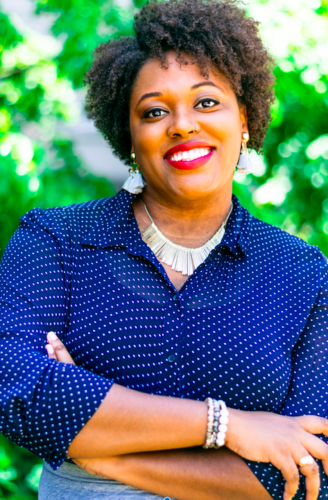 Finding the Signal Through the Noise: Assessing Racial Data Bias in Electronic Health Record-Based Documentation of Pediatric Sleep Problems
Finding the Signal Through the Noise: Assessing Racial Data Bias in Electronic Health Record-Based Documentation of Pediatric Sleep Problems
Mattina Davenport, PhD
2:00pm - 2:20pm
Mattina Davenport, PhD, is a school psychology trained Pediatric Psychologist with expertise in pediatric sleep. Dr. Davenport is a Principal Investigator in the Center for Child Health Equity and Outcomes Research at the Abigail Wexner Research Institute at Nationwide Children's Hospital, and an Assistant Professor of Pediatrics at The Ohio State University College of Medicine. She is a Health Equity and Pediatric Sleep Researcher that leads the Sleep Empowers Lab. Her population health research, deploying machine learning and bias mitigation methods to equitably estimate sleep problems in pediatric healthcare systems, is funded by the National, Heart, Lung, Blood Institute/National Institute of Health.
 “The Hill We Climb, if Only we Dare it”: Changemaking in Pediatric Adherence and Self-Management Science
“The Hill We Climb, if Only we Dare it”: Changemaking in Pediatric Adherence and Self-Management Science
Desireé N. Williford, PhD, MPH
2:20pm - 2:40pm
Dr. Desireé Williford (pronouns: she/her/hers) is an Assistant Professor of Pediatrics in Division of Behavioral Medicine and Clinical Psychology and Center for Adherence and Self-Management at Cincinnati Children’s Hospital Medical Center. She also holds a joint appointment in the Department of Pediatrics at the University of Cincinnati College of Medicine. Dr. Williford earned her PhD in Psychology and MPH in Health Policy, Management and Leadership from West Virginia University in 2021., Dr. Williford’s research and clinical interests emphasize community-engaged approaches to the design, implementation, and cultural adaptation of evidence-based interventions, tools, and programming for youth with diabetes and their support systems. She is particularly interested in applications of social justice and equity, diversity, and inclusion principles to behavioral diabetes research and developing novel methods for assessing and intervening upon social determinants of health in pursuit of equitable improvements in self-management and glycemic outcomes.
Session 3: 3:15pm EDT

Bridging Clinical Practice with Psychosocial Research: Examples from Pediatric, Adolescent and Young Adult Oncology
Lori Wiener, PhD, DCSW, FAPA, FAPOS
3:15pm - 4:15pm
Lori Wiener, PhD., is co-director of the Behavioral Science Core and Head of the Psychosocial Support and Research Program at the pediatric oncology branch of the National Cancer Institute (NCI). As both a clinician and behavioral scientist, Dr. Wiener has dedicated her career to the fields of oncology and pediatric HIV/AIDS. At the NCI, she has developed a robust clinical and research program that has focused on critical clinical issues such as parental coping, lone parenting, transnational parenting, sibling and sibling donor experiences, graph versus host disease, and end-of-life planning. Dr. Wiener has also dedicated a substantial part of her career to applying knowledge from her clinical experience and psychosocial studies to create innovative resources such as books, workbooks, therapeutic games and an advance care planning guide for children, adolescents, and young adults. Each of these resources are distributed worldwide and widely utilized in pediatric centers.
Dr. Wiener proudly led the team that has developed the first evidence-based psychosocial standards of care for children with cancer and their family members. She has over 270 publications spanning peer-reviewed papers and book chapters. Dr. Wiener has co-edited the textbooks Pediatric Psycho-Oncology: A Quick Reference on the Psychosocial Dimensions of Cancer Symptom Management and Pediatric Psychosocial Oncology: Textbook for Multi-disciplinary Care, co-authored a storybook, The Gift of Gerbert’s Feathers, to help children through the psychological and behavioral process of preparing for a natural end of life and more recently, co-edited a Special Issue in CHILDREN on Psychosocial Issues in Children and Adolescents Living with a Rare Condition.
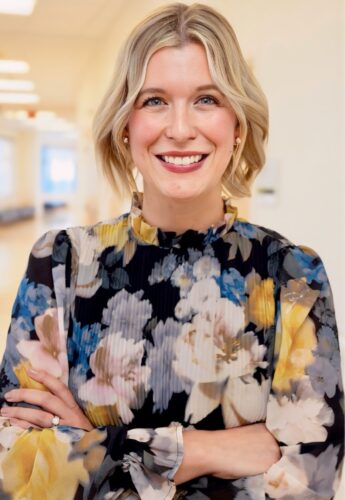 When Sparks Fly: the Booms, the Busts, and the Lessons Learned from Launching a Clinical Research Program in a Pediatric Heart Center
When Sparks Fly: the Booms, the Busts, and the Lessons Learned from Launching a Clinical Research Program in a Pediatric Heart Center
Melissa K. Cousino, PhD
4:15pm - 4:35pm
Dr. Melissa Cousino is an Associate Professor of Pediatrics and Cardiac Surgery at the University of Michigan and Director of the M-COPE Psychosocial Services and Research Program within the Congenital Heart Center at C.S. Mott Children’s Hospital. Clinically, she provides pediatric psychology services to youth with cardiac and advanced solid organ diseases. Dr. Cousino also directs a program of research funded by the National Institute of Health focused on healthcare communication, medical decision making, mental health and resilience in pediatric advanced heart disease.
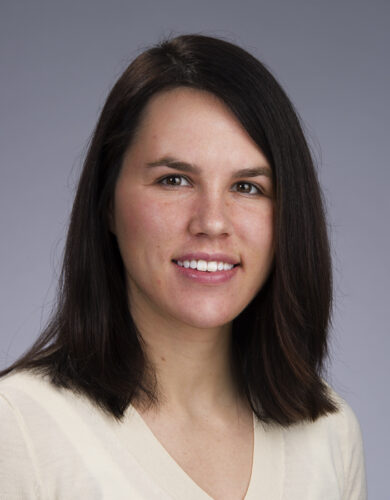 Implementation Science and Pediatric Psychology: Making Psychosocial Evidence-Based Practices Standard Care for All Families
Implementation Science and Pediatric Psychology: Making Psychosocial Evidence-Based Practices Standard Care for All Families
Julia Price, PhD
4:35pm - 4:55pm
Dr. Julia Price is a research scientist in the Center for Healthcare Delivery Science at Nemours Children’s Health System in Wilmington, Delaware, as well as an Assistant Professor of Pediatrics at the Sidney Kimmel Medical School of Thomas Jefferson University. She completed her doctoral training at Temple University and her predoctoral internship and postdoctoral fellowship at Nemours Children’s Hospital Delaware. Dr. Price’s program of research applies implementation science principles to pediatric psychology, particularly in type 1 diabetes and pediatric injury. She is dedicated to ensuring that evidence-based psychosocial practices are integrated into standard care for all children and families.
Conflicts of Interest
Dr. Boerner has a small private practice as a psychologist. She holds funding as co-PI from the Laurel Foundation and BC Children's Hospital Research Institute, and her position is supported by the Investigator Grant Award Program from the BC Children's Hospital Research institute (Level 1 Scientist Award).
Mattina Davenport is currently supported by the National Heart, Lung, Blood Institute (1K01HL169493-1; Principal Investigator: MD)
No conflicts of interest for Christine Chambers, Alexandra Psihogios, Idia Thurston, Desireé Williford, Lori Wiener, Melissa Cousino, and Julia Price
View the 2024 Fall Virtual Program. Session descriptions can be found below.
Session 1: 10:00am-12:00PM EDT
From Research to the Real World: Solutions for Kids in Pain
Christine Chambers, PhD
The content of this presentation is designed to apply broadly, with applicability across beginner to advanced learning levels
Poorly managed pain in children is a serious health problem resulting in unnecessary suffering and overwhelmingly negative immediate and long-term effects. Effective treatments exist, yet children and their families continue to suffer due to undertreatment and our failure to prevent pain. The full potential of research can only be realized if it is effectively disseminated to patients, health care providers, policy makers, and others, and implemented into the real world, through clinical practice and health policy. Solutions for Kids in Pain (SKIP; https://kidsinpain.ca) is a knowledge mobilization network in children’s pain that is bridging the gap between current treatment practices and evidence-informed solutions. SKIP’s mission is to improve children’s pain management by mobilizing evidence-based solutions through coordination and collaboration. This presentation will highlight how, to make gains in moving from research to the real world, one must consider the application of scientific discoveries to different types of knowledge users and settings, the value of partnerships, the importance of patient engagement, and the importance of collaboration.
Intentional Inclusion: Enhancing Access to Pain Research and Care for Gender-Diverse and Autistic Youth
Katelynn Boerner, PhD
The content of this presentation is designed to apply broadly, with applicability across beginner to advanced learning levels
Gender- and neuro-diverse youth have been historically excluded from child health research, but are disproportionately represented in child health clinics. Rather than simply naming this issue in the "limitations" section of papers, researchers have an ethical imperative to take actionable steps towards addressing this gap in creating translational research. This talk will focus on practical approaches for co-creation with families, thinking flexibly about research design, and incorporating opportunities for feedback and iteration in every project to advance accessibility and applicability of research in these populations. Examples from pain research with gender-diverse and neuro-diverse youth will be highlighted.
Enhancing Adolescent and Young Adult Cancer Care through Community-Engaged Digital Health
Alexandra Psihogios, PhD
The content of this presentation is designed to apply broadly, with applicability across beginner to advanced learning levels.
In this presentation, Dr. Psihogios will share research focused on promoting self-management and adherence among adolescents and young adults with cancer. She will discuss the application of community-engaged research approaches in the digital health design and research process. Dr. Psihogios will share how community involvement has shaped two emerging digital interventions. The first intervention is an app-based, just-in-time adaptive mobile intervention called “ADAPTS”. It uses inputs from daily surveys and sensors to tailor daily oral chemotherapy adherence messages. The second intervention adopts a population health approach and aims to deliver support within an information ecosystem that AYAs already use for cancer—social media. This intervention is called the “AYA Oncology Self-Care Movement” or #AYAOSM. As part of this line of work, Dr. Psihogios collaborates closely with a Community Advisory Board of YA survivors who are “social media influencers” as a strategy for co-developing engaging cancer information with broad reach.
Session 2: 1:00pm-3:00pm EDT
We are the CHANGE We are Waiting for: Pediatric Psychologists as Champions of Structural Change
Idia B. Thurston, PhD
Learner Level: Intermediate
This talk will center the role of pediatric psychologists as the leaders and agents of implementing structural changes to advance health equity. Equity gaps in our science will be discussed including lack of diversity in topics, populations researched, scientists, reviewers of our science, and dissemination avenues and how this narrow lens stifles intellectual contributions, idea generation and scholarly innovation. This talk will also highlight structural and procedural barriers holding our science back and offer concrete strategies to deviate from that norm and embed Justice, Equity, Diversity, Inclusion, and Belonging (JEDI-B) practices into our work as practitioners, educators, advocates, and researchers.
Finding the Signal Through the Noise: Assessing Racial Data Bias in Electronic Health Record-Based Documentation of Pediatric Sleep Problems
Mattina Davenport, PhD
The content of this presentation is designed to apply broadly, with applicability across beginner to advanced learning levels.
High quality electronic health record (EHR) documentation is necessary to support patient care and secondary analyses using machine learning approaches. As a use case, this presentation will outline strategies to understand data quality gaps in routinely documented pediatric sleep problems and potential sources of bias that appear in the data lifecycle. With the uptake of digital solutions to transform healthcare, this timely presentation will outline relevant strategies for pediatric psychologists to prevent health data disparities and improve digital health equity in their pediatric healthcare systems.
“The Hill We Climb, if Only we Dare it”: Changemaking in Pediatric Adherence and Self-Management Science
Desireé N. Williford, PhD, MPH
The content of this presentation is designed to apply broadly, with applicability across beginner to advanced learning levels.
Building upon the foundational article Upending Racism in Psychological Science: Strategies to Change How Our Science is Conducted, Reported, Reviewed, and Disseminated (Buchanan et al., 2020), Dr. Williford’s presentation provides theoretical and practical guidance for researchers to become changemakers and address structural inequities in pediatric adherence and self-management science. Dr. Williford will provide real-word examples, including discussing challenges to the systematic integration of equity principles into our science, especially at early training and career stages.
Session 3: 3:15pm-5:15pm EDT
Bridging Clinical Practice with Psychosocial Research: Examples from Pediatric, Adolescent and Young Adult Oncology
Lori Wiener, PhD, DCSW, FAPA, FAPOS
The content of this presentation is designed to apply broadly, with applicability across beginner to advanced learning levels
During this session, Dr. Wiener will illustrate ways psychosocial research can be integrated into a pediatric clinical setting by bridging clinical insights into new research questions, that can then inform the development of new tools, resources, and interventions.
When Sparks Fly: the Booms, the Busts, and the Lessons Learned from Launching a Clinical Research Program in a Pediatric Heart Center
Melissa K. Cousino, PhD
The content of this presentation is designed to apply broadly, with applicability across beginner to advanced learning levels
This talk will discuss three clinical research programs in a pediatric heart center, including a QI-based program, a telemedicine and digital health-based program, and a federally-funded randomized pilot trial. Focus will be on lessons learned in developing, funding, and launching three very different programs from the perspective of both a clinician and a researcher.
Implementation Science and Pediatric Psychology: Making Psychosocial Evidence-Based Practices Standard Care for All Families
Julia Price, PhD
The content of this presentation is designed to apply broadly, with applicability across beginner to advanced learning levels.
Dr. Price will briefly review a model of how to apply implementation science to the field of pediatric psychology, employing examples from pediatric type 1 diabetes and pediatric injury. Community-engaged approaches and equity considerations across all phases of implementation science research will also be explored. Dr. Price will highlight opportunities for those at varying training levels and across different roles in pediatric psychology to engage in this area of research.
Session 1: 10:00am
From Research to the Real World: Solutions for Kids in Pain
Christine Chambers, PhD
- Identify the importance of mobilizing research knowledge and describe key elements of this process;
- Describe best practices in knowledge mobilization based on examples provided from Solutions for Kids in Pain, a national knowledge mobilization network.
Intentional Inclusion: Enhancing Access to Pain Research and Care for Gender-Diverse and Autistic Youth
Katelynn Boerner, PhD
- Identify gaps in the translational research pipeline due to inaccessible research practices;
- Apply inclusive research practices to the participants' own research program.
Enhancing Adolescent and Young Adult Cancer Care through Community-Engaged Digital Health
Alexandra Psihogios, PhD
- Identify the implementation benefits and challenges of digital health tools for addressing AYA health behaviors, including medication adherence.
- Describe one case study of how community-engaged research methods can be applied within online social media communities.
Session 2: 1:00pm
We are the CHANGE We are Waiting for: Pediatric Psychologists as Champions of Structural Change
Idia B. Thurston, PhD
- Describe at least two ways in which structural inequity is present in pediatric psychology
- List at least 3 strategies for advancing health equity science in pediatric psychology
Finding the Signal Through the Noise: Assessing Racial Data Bias in Electronic Health Record-Based Documentation of Pediatric Sleep Problems
Mattina Davenport, PhD
- Identify strategies to prevent health data poverty and disparities in the clinical data life cycle.
- Apply digital health equity framework recommendations to reduce the growing digital divide in pediatric healthcare systems.
Instructional Audience: The content of this presentation is designed to apply
“The Hill We Climb, if Only we Dare it”: Changemaking in Pediatric Adherence and Self-Management Science
Desireé N. Williford, PhD, MPH
- Describe a model for addressing structural inequities in pediatric adherence and self-management science.
- Discuss a study which applies equity principles to intervene upon structural inequities in pediatric adherence and self-management science.
Session 3: 3:15pm
Bridging Clinical Practice with Psychosocial Research: Examples from Pediatric, Adolescent and Young Adult Oncology
Lori Wiener, PhD, DCSW, FAPA, FAPOS
- To describe ways to integrate psychosocial research into a clinical setting
- To identify the steps utilized in the development of an adolescent and young adult (AYA) planning document.
When Sparks Fly: the Booms, the Busts, and the Lessons Learned from Launching a Clinical Research Program in a Pediatric Heart Center
Melissa K. Cousino, PhD
- To describe one benefit of integrating formalized research into pediatric psychology-led clinical programming.
- To describe one study design that can be used to guide clinical research within practice.
Implementation Science and Pediatric Psychology: Making Psychosocial Evidence-Based Practices Standard Care for All Families
Julia Price, PhD
- List two ways to engage in implementation science research as a pediatric psychologist or pediatric psychology trainee
- Identify two reporting guidelines to use when conceptualizing pediatric psychology findings within implementation science
Joint Accreditation Statement:
 In support of improving patient care, this activity has been planned and implemented by Amedco LLC and the Society of Pediatric Psychology. Amedco LLC is jointly accredited by the Accreditation Council for Continuing Medical Education (ACCME), the Accreditation Council for Pharmacy Education (ACPE), and the American Nurses Credentialing Center (ANCC), to provide continuing education for the healthcare team. Professions in scope for this activity are listed below.
In support of improving patient care, this activity has been planned and implemented by Amedco LLC and the Society of Pediatric Psychology. Amedco LLC is jointly accredited by the Accreditation Council for Continuing Medical Education (ACCME), the Accreditation Council for Pharmacy Education (ACPE), and the American Nurses Credentialing Center (ANCC), to provide continuing education for the healthcare team. Professions in scope for this activity are listed below.
Amedco Joint Accreditation Provider Number: 4008163
Psychologists:
 This course is co-sponsored by Amedco and the Society of Pediatric Psychology. Amedco and the Society of Pediatric Psychology are approved by the American Psychological Association to sponsor continuing education for psychologists. Amedco and the Society of Pediatric Psychology maintain responsibility for this
This course is co-sponsored by Amedco and the Society of Pediatric Psychology. Amedco and the Society of Pediatric Psychology are approved by the American Psychological Association to sponsor continuing education for psychologists. Amedco and the Society of Pediatric Psychology maintain responsibility for this
program and content. Maximum of 6.00 hours.
The following state boards accept courses from APA providers for Counselors: AK, AR, AZ, CA, CO, CT, DC, DE, FL, GA, HI, IA, ID, IL, IN, KS, KY, MD, ME, MO, NC, ND, NH, NE, NJ, NM, NV, OK*, OR, PA, RI, SC, SD, TN, TX, UT, VA, WI, WY
MI: No CE requirements.
*OK: Accepts APA credit for live, in-person activities but not for ethics and/or online courses.
The following state boards accept courses from APA providers for MFTs: AK, AR, AZ, CA, CO, CT, DE, FL, GA, IA, ID, IN, KS, MD, ME, MO, NE, NC, NH, NJ, NM, NV, OK*, OR, PA, RI, SC, SD, TN, TX, UT, VA, WA, WDC, WI, WY
AL MFTs: Credits authorized by NBCC or any other state licensing agency will be accepted.
MA MFTs: Participants can self-submit courses not approved by the MAMFT board for review.
The following state boards accept courses from APA providers for Addictions Professionals: AK, AR, CO, CT, DC, DE, GA, IA, IN, KS, LA, MD, MO, MT, NC, ND, NE, NJ, NM, NY (held outside NY ONLY), OK*, OR, SC, UT, WA, WI, WY
The following state boards accept courses from APA providers for Social Workers: AK, AR, AZ, CA, CO, DE, FL, GA, ID, IN, KY, ME, MN, MO, NE, NH, NM, OR, PA, VT, WI, WY
New York Psychologists:
NY-PSY Credit Designation Statement: Amedco is recognized by the New York State Education Department’s State Board for Psychology as an approved provider of continuing education for licensed psychologists #PSY-0031. 6.00 hours.
Virtual Student Mentoring Lunch
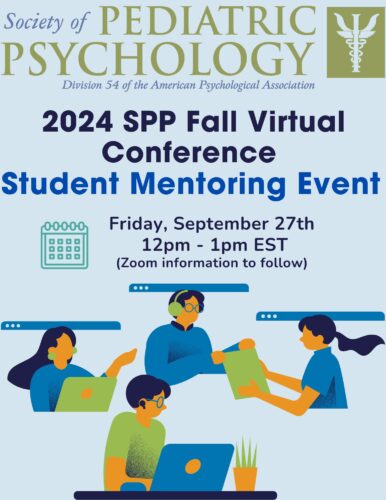 The Student Mentoring Lunch will be September 27, 12:00pm-1:00pm!
The Student Mentoring Lunch will be September 27, 12:00pm-1:00pm!
This event aims to be an opportunity for SPP students and trainees to meet and network with leaders in the field of pediatric psychology. This is a great opportunity for students and trainees who were unable to attend the 2024 SPP Annual Conference Mentoring Lunch in-person. Participating mentors will be matched with mentees and efforts will be made to group students at similar training stages and interests.
Our first virtual Internships and Fellowships on Parade will take place on Friday, September 27, 5:15pm-6:15pm ET.
This is a great opportunity for student and trainee SPP members to learn about multiple pediatric psychology internship and fellowship programs, especially if you are not able to attend the SPP Annual Conference in-person.
SPP students and trainees will be able to drop into breakout rooms to interact with programs. There is no specific structure, and this is an informal opportunity for students, trainees, and programs to network and connect!

